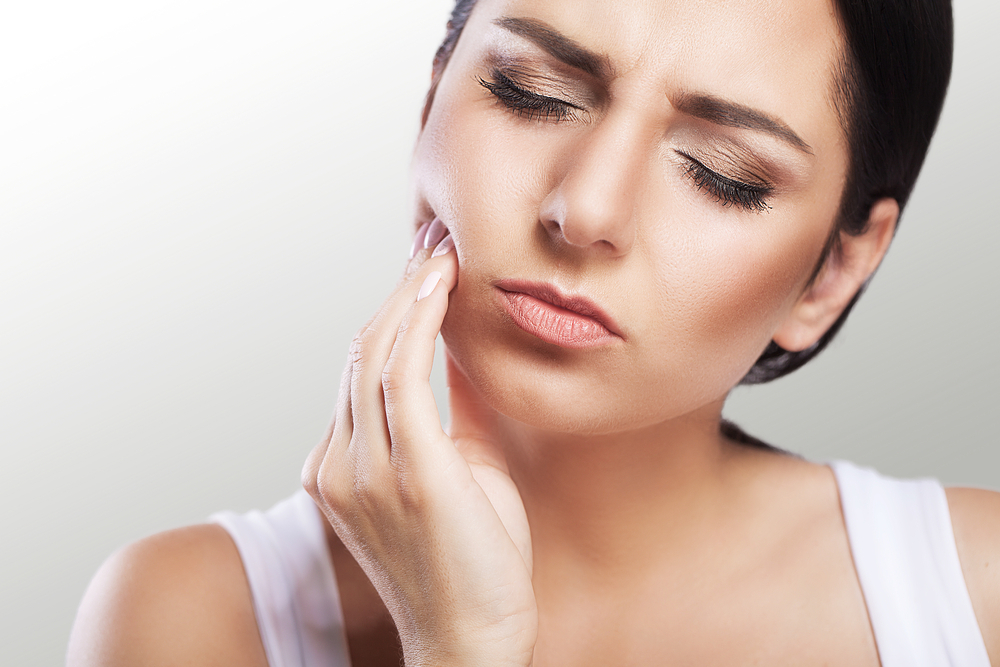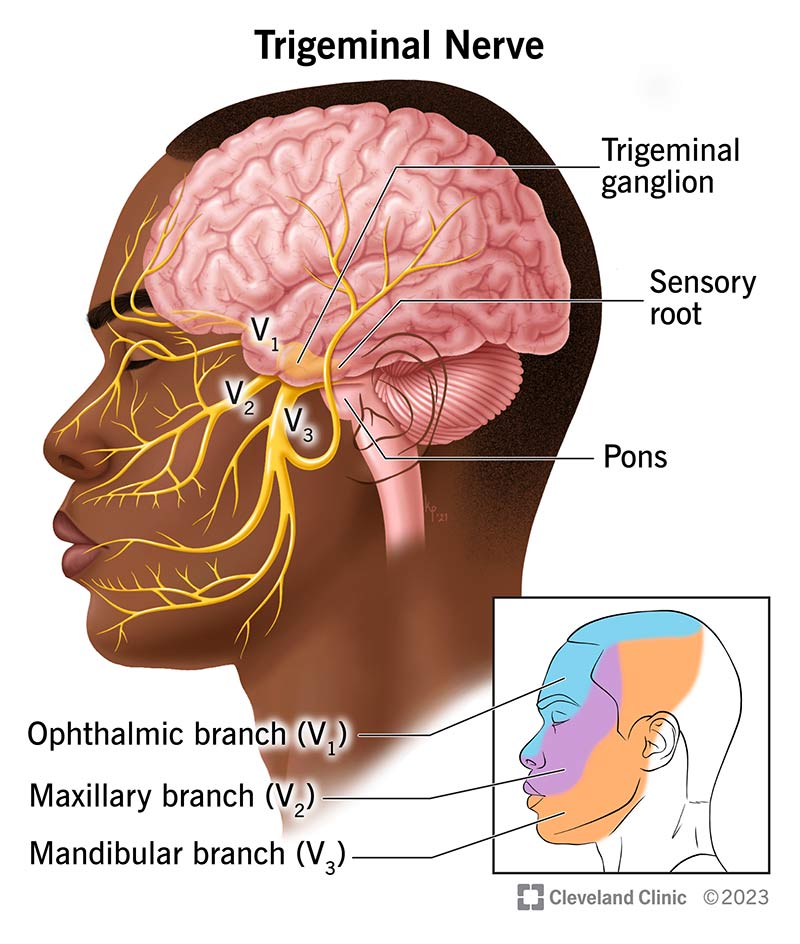Head and Facial
Conditions
- Trigeminal Neuralgia
- Temporomandibular Joint (TMJ) disorders
- Atypical Facial Pain
- Migraine Headaches
- Tension Headaches
- Cervicogenic Headaches
- Occipital Neuralgia
- Post-Whiplash Headaches
- Post Concussion Syndrome
Treatments
- Sphenopalatine Ganglion (SPG) Block (Injection Technique)
- Botox Injections for Chronic Migraine
- Epidural Blood Patch
- Trigeminal Nerve Block
- Trigeminal Nerve Radiofrequency Ablation


What is Trigeminal Neuralgia?
Signs And Symptoms Of Trigeminal Neuralgia
Trigeminal Neuralgia Treatment Options at Relevium
TN can be treated with either medication management or various surgical procedures.
At Relevium, we proudly specialize in the following treatment options:
- Trigeminal Nerve Block: Nerve blocks are a type of anesthesia that can be used to block pain signals from traveling along certain nerves
- Botox Injections: The botox neurotoxin is injected into calculated areas which can help stop migraines before they start.
- Sphenopalatine Ganglion (SPG) Block: This is an injection of numbing medicine delivered to the area around a bundle of nerves called the Sphenopalatine Ganglion
- Trigeminal Nerve Radiofrequency Ablation: A hand-held device is positioned so the nerve area is gradually heated, injuring the nerve fibers and blocking their ability to send pain signals.
What is a Migraine?
A migraine is a headache that can cause severe throbbing pain. It is often accompanied by nausea, vomiting, and extreme sensitivity to light and sound. Migraine attacks can last for hours to days, and the pain can be so severe that it interferes with your daily activities.
A migraine likely starts when overactive nerve cells send out signals that trigger your trigeminal nerve, which gives sensation to your head and face telling your body to release chemicals like serotonin and calcitonin gene-related peptide (CGRP). The rapid release of those neurotransmitters causes the associated inflammation and pain.

Migraines come in episodes and with various symptoms including:
- Nausea/Vomiting
- Dizziness or fatigue
- Sensitivity to light, sound, or smell
- Food cravings or lack of appetite
- Mood changes
- Bloating, constipation, or diarrhea
- See black dots, wavy lines, flashes of light, or things that aren’t there (hallucinations)
- Have tingling or numbness on one side of your body
- Not being able to speak clearly
- Have a heavy feeling in your arms and legs
- Have ringing in your ears
- Notice changes in smell, taste, or touch
- Muscle pain or weakness
What can trigger migraines?
Most migraine headaches start off slowly and can last about 4 hours. Severe ones can last for more than 3 days. Some things that make you more likely to get migraines are sex, age, family history, or other medical conditions like depression, anxiety, bipolar disorder, sleep disorders, and epilepsy. Most people start having migraine headaches between ages 10 and 40 and in general, women have migraines three times more often than men.
Despite being possible treatments, getting too much or not getting as much caffeine and sleep as you’re used to can be triggering as well. External things like storm fronts, changes in barometric pressure, strong winds, changes in altitude, loud noises, bright lights, strong smells, medications that widen your blood vessels, as well as exercise and sex can be causes too.
How to Prevent Migraines
As mentioned, migraines are often associated with an event or trigger. Identifying and avoiding those triggers is the primary step to migraine prevention. Stress is another major contributor and trigger of migraines. Relaxation techniques like meditation, yoga, mindful breathing, and drinking lots of fluids, and getting regular exercise can help regulate stress and hormone imbalances that can cause or increase the chances of triggering a migraine. Migraines can also be affected by:
- Alcohol consumption/ Hangovers
- Diet/skipped meals
- Sleeping schedule
- Poor posture
- Viral and bacterial infections
- Dental problems
- Brain tumors
- High blood pressure or stroke
How do I Manage Migraine Symptoms?
Managing migraine symptoms at home by resting with your eyes closed in a dark, quiet room, putting a cool compress or ice pack on your forehead, and drinking plenty of liquids can help. Common treatments include over-the-counter medications such as acetaminophen, aspirin, caffeine, and ibuprofen. Primary physicians may suggest preventive medicines not limited to seizure medicines, beta-blockers and calcium channel blockers, antidepressants, and shots of Botox.
If you cannot find relief with at-home remedies or over-the-counter medications, the specialists here at Relevium offer a variety of treatments that include:
- Sphenopalatine Ganglion (SPG) Block Injection
- Peripheral Nerve Scalp Blocks
- Botox: injections in your head and neck that can prevent migraines
Head/Facial Pain at Relevium
Each treatment option can help relieve migraine pain or prevent migraines from developing. If you suffer from chronic migraines, you know how disruptive they can be. At Relevium in New Jersey, our Harvard Trained physicians can provide effective treatment solutions that fit your lifestyle and pain management goals. Take back your life with Relevium. Call and schedule your appointment today by calling (973) 200-4695 or requesting your appointment online.



